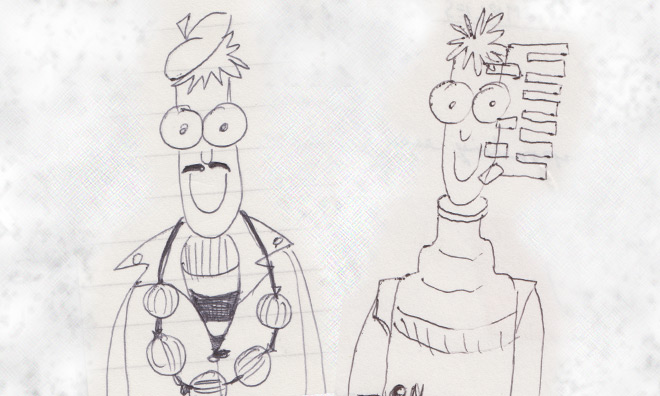1998 BC (before cheesebrush)

Since the dawn of time itself, Bridlington Cheeses had been making the worlds
finest cheese. Yet, whilst their Goudas were great and the Edam was exquisite,
the 'Panel of 5' (an elite group of 8 of Bridlington's finest cheese experts)
had never been 100% satisfied that cheese perfection had been attained.
Something was wrong (apart from the fact that none of them could count).
Something was missing. Or was it that there was something extra.....?
Dirt was the problem. After 7 years of extensive research, the 'Panel of 5' and their team of the best scientists the North East of England had to offer, found that it was simple dirt that was affecting the quality of cheese production. The realisation of this terrible fact caused shockwaves throughout the entire company.
For decades, people across the world had relied on traditional cheese rolling techniques to attain the perfect flavour and texture (The inventors of cheese rolling, El Pablo Cheeses of Mexico, had made a terrible mistake when submitting the cheese rolling technique patent, leading to it's worldwide use by the turn of the century). Could it now be that this age old revolution in cheese making was also responsible for the biggest crisis in cheese quality since the mouse plague of 1968?
The 'Panel of 5' set about solving this problem. They knew that eventually other companies would discover that dirty cheese was responsible for a lack of perfection in all cheese. But as long as they were the only ones who knew, they could get a head start and begin work on a solution. They knew the very future of cheese production in Bridlington was at stake here. It was all or nothing. Success meant domination of the world cheese market for years to come. Failure would allow a competitor to gain the upper hand, which could only result in the inevitable downfall of their organisation.
For months the secret was kept whilst the 'Panel of 5' and their team of scientists (which had now been expanded to include scientisis from Yorkshire, Mersyside and a few from as far south as the West Midlands) toiled to find a solution. And then the unthinkable happend. The secret got out and within hours every televsion station and newspaper was carrying the story - 'Dirty cheese impairs taste'.
Immediately an enquiry was ordered from the very highest levels within Bridligton Cheeses, to discover how the news had got out. After an extensive investigation (mainly involving the janitor poking around employee's lockers) it was discovered that one of the scientists from the West Midlands had leaked the story to the press. Later investigations would reveal him to belong to an extreme left wing group, the FDP (Freedom for Dairy Produce), who believed that cheese was for the people, by the people, that the world had to work together as one to solve the cheese crisis and that commercial gain should not be a factor when it comes to food crises.
Bridlington Cheeses became the center of media attention and a few employees took this opportunity to sell their story to the papers.
"Ah never trusted that bl**dy Brummie," said one of the scientists from Yorkshire, "mah whippet took an instant dislike to 'im. Eyes were too close t'gether. No flat cap. An' he spoke wit' a reet funny accent."
Things were looking bleak. Bridlington Cheeses lead was gone and competitors from around the country (such as Clackton Cheddar and Dinting Dairy Delights) had begun their own extensive research programmes. Then, just as things were looking their blackest, a young cheese rolling, production line operator by the name of Arthur Cleethorpes made a discovery that changed the face of the cheese industry forever...